Indo-German Forum: Sustainable Urban Mobility
The Indo-German forum will bring together researchers, decision-makers, and professionals from India and Germany to present research projects across disciplines and analysis on sustainable solutions and technologies for sustainable urban mobility focusing on governance, mobility solutions, resilience and green energy production, supply and efficiency.
The platform will offer insights from ongoing research projects, showcase applied science, and provide a forum to discuss policies. Participants will have the opportunity to discuss challenges, exchange ideas and network with experts, researchers, policy makers and other stakeholders from India and Germany.
The platform is open for B2B meetings from 20-24 March 2023.
Programme
.png)
In this fireside chat, researchers and policy advisors from think tanks and research universities will discuss the current energy transition policy in India and Germany with a focus on the role of urban mobility. They will address global trends and assess the current developments in both countries.
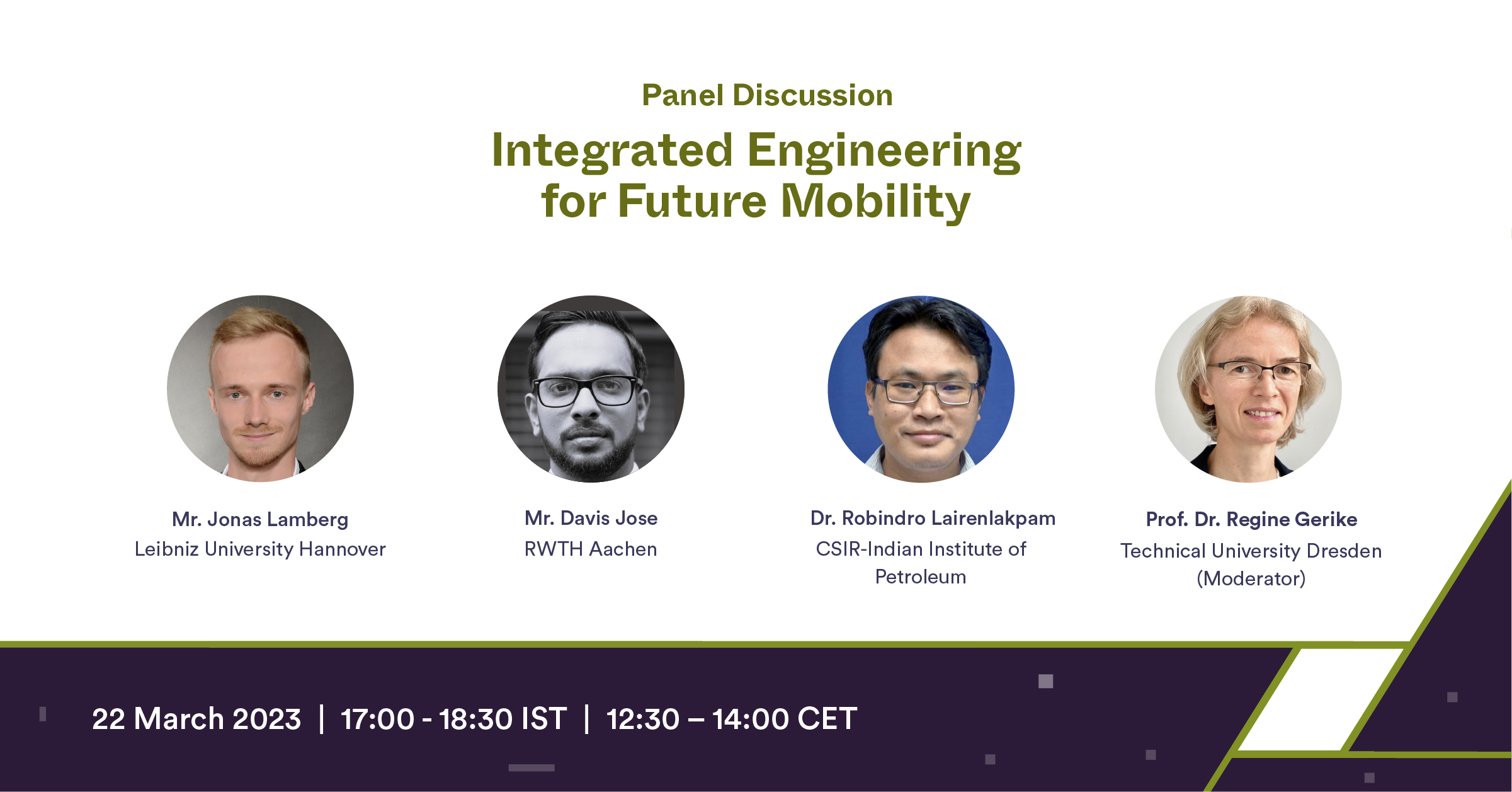
Early careers researchers from India and Germany will discuss the future of urban mobility from an interdisciplinary perspective . They will share insights from their research and give an outlook on future cooperation fields and projects between India and Germany that they have identified in a two-day design thinking workshop.
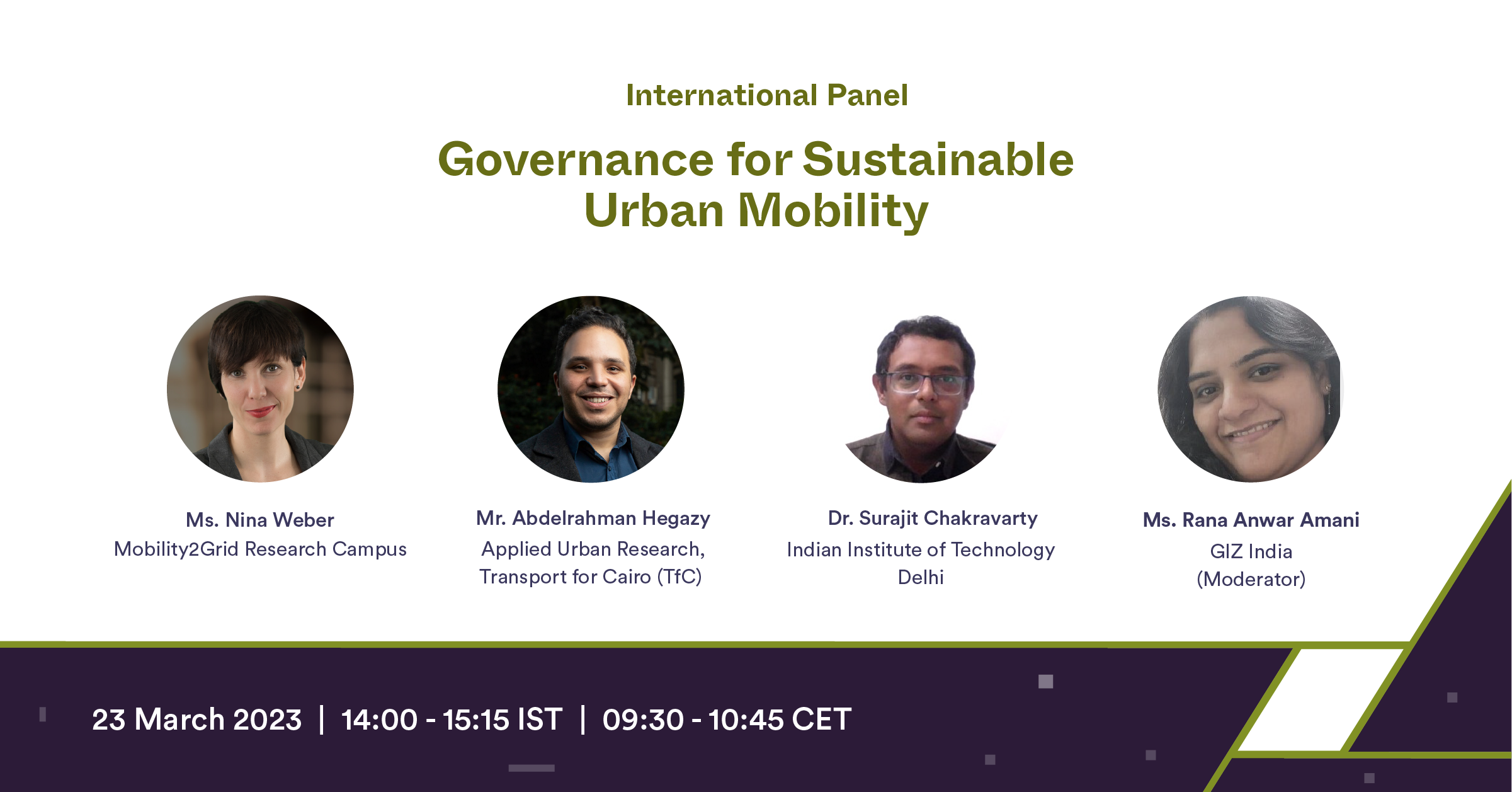
In this session, policy advisors and researchers share their work on governance of sustainable mobility in megacities of India, Egypt, and Germany. They will discuss the challenges of the transformation of urban transport and highlight the role of the interconnectivity of mobility and energy systems.
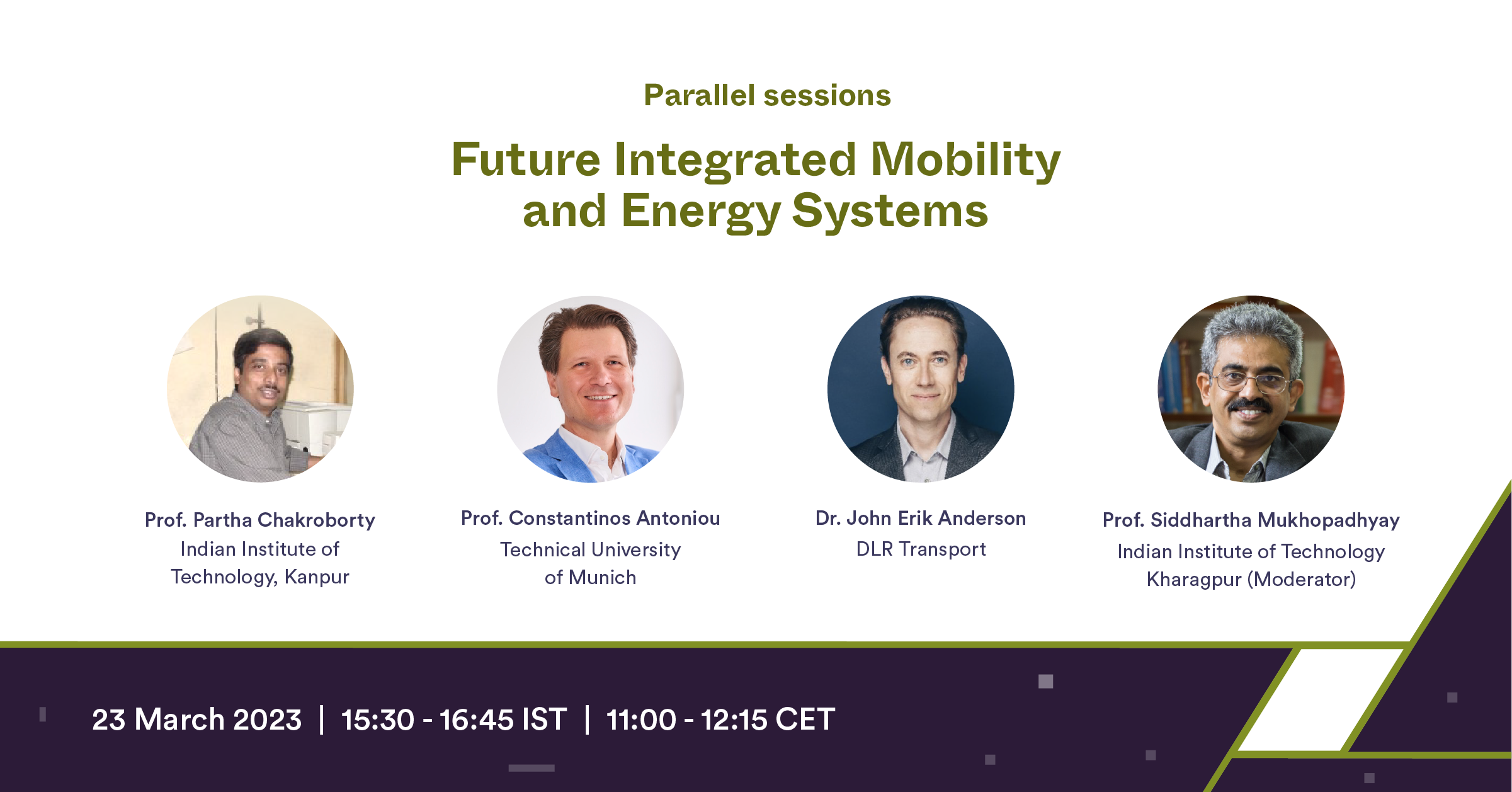
Incorporating new modes of transport and mobility options using green energy systems requires an integrated data-driven approach. In this panel, researchers will share their modelling scenarios and approaches. They will discuss state-of-the-art scientific methods; innovative methods of data analysis and models and how integrated mobility and energy systems models can contribute to the transformation of urban mobility.
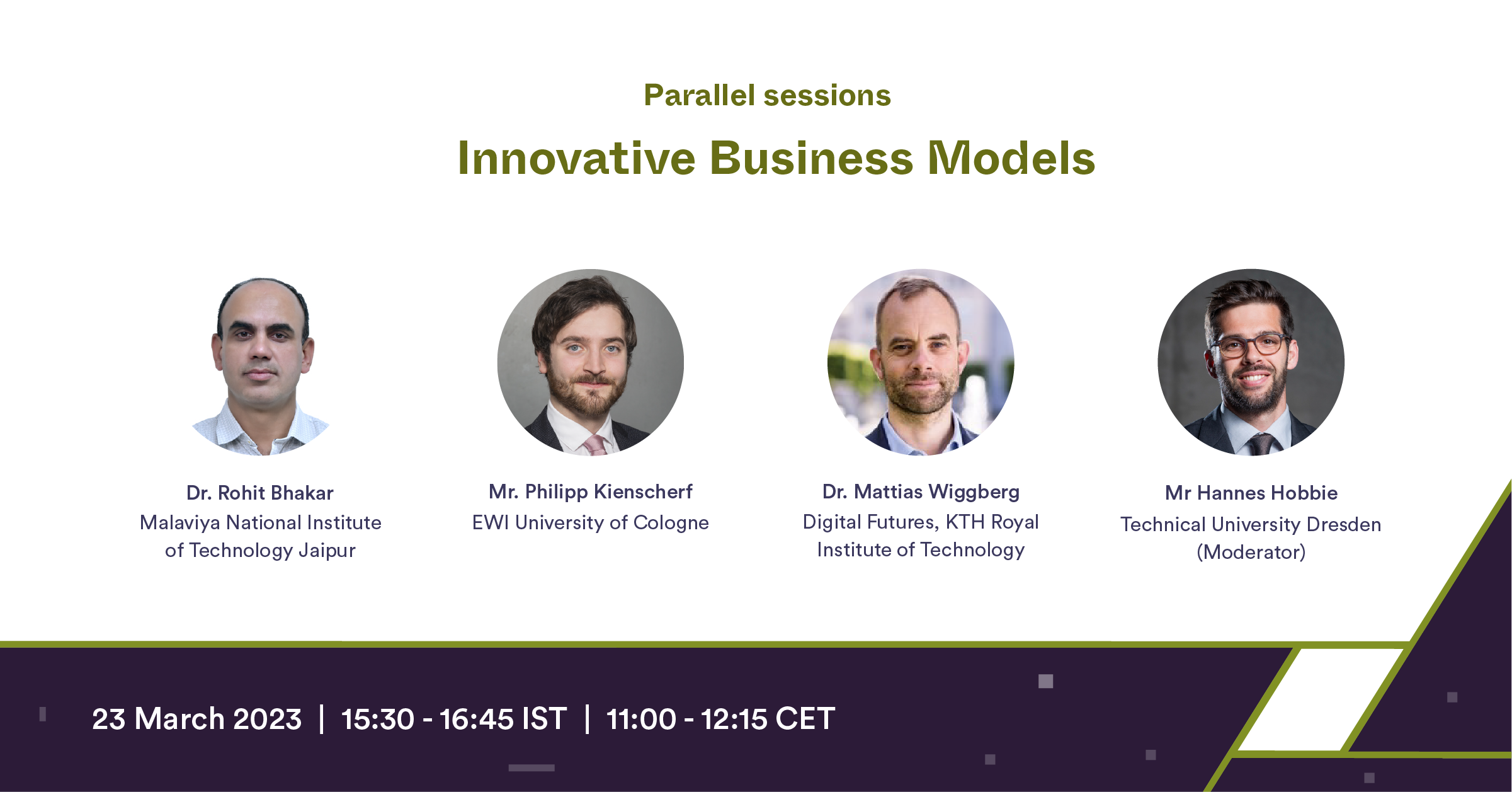
Sustainable mobility solutions hunt for both- new technology and management of innovation. The successful deployment of the energy and mobility transition relies on a deep reorganization of the energy market. Business model innovation is recognized as a key driver of this process. In this panel researchers from India, Germany, and Sweden will offer an overview of business model innovations for energy markets focusing on the energy transition in cities.
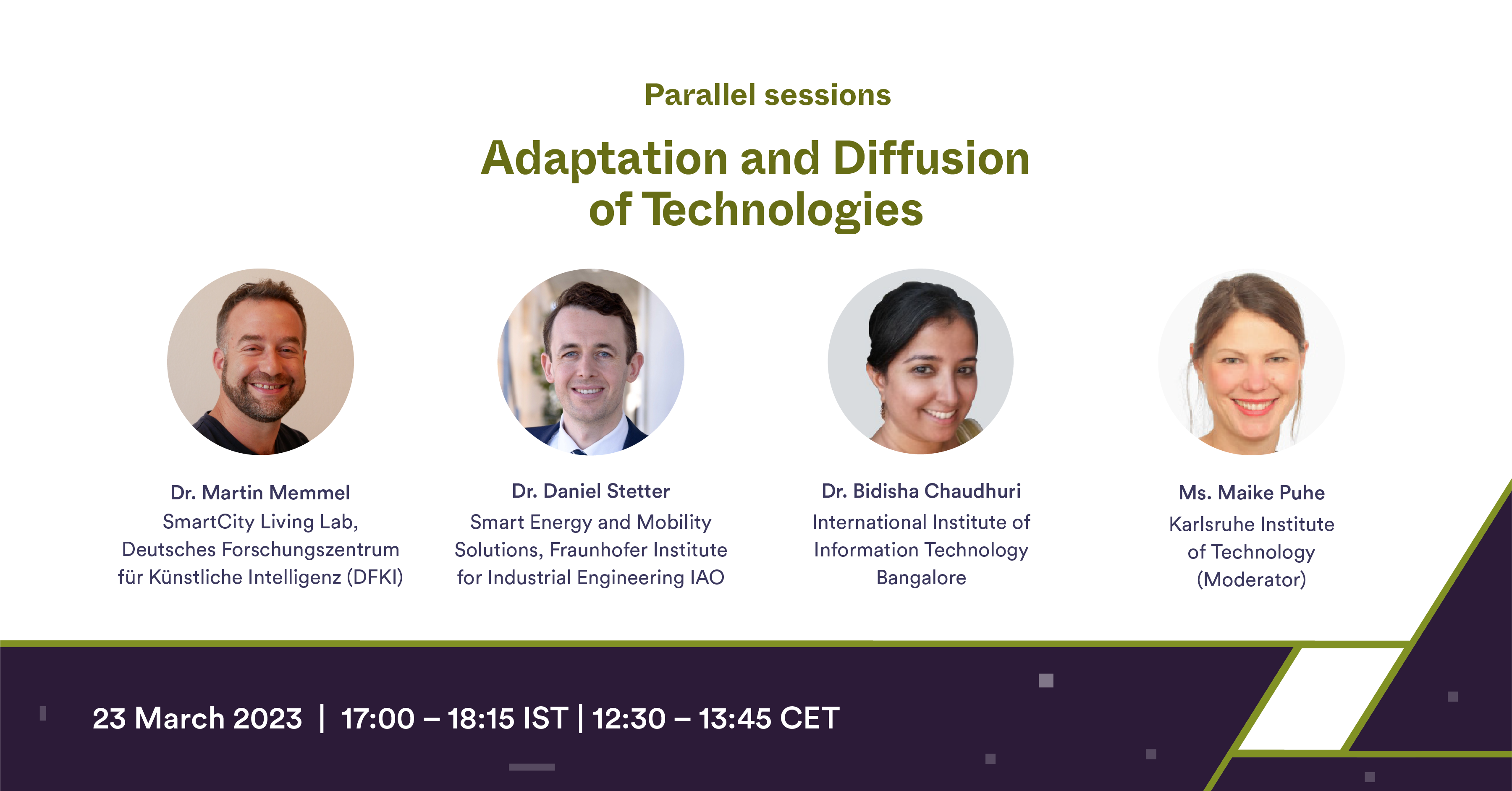
Even though technological innovations and technologies are critical for driving sustainable transport in cities, social embedding and, hence, acceptance and use of these technologies are to achieve the goal of zero carbon emission of mobility in cities. The panel will give an outlook on technology and adaptation processes and models in Germany and India using the example of electromobility.
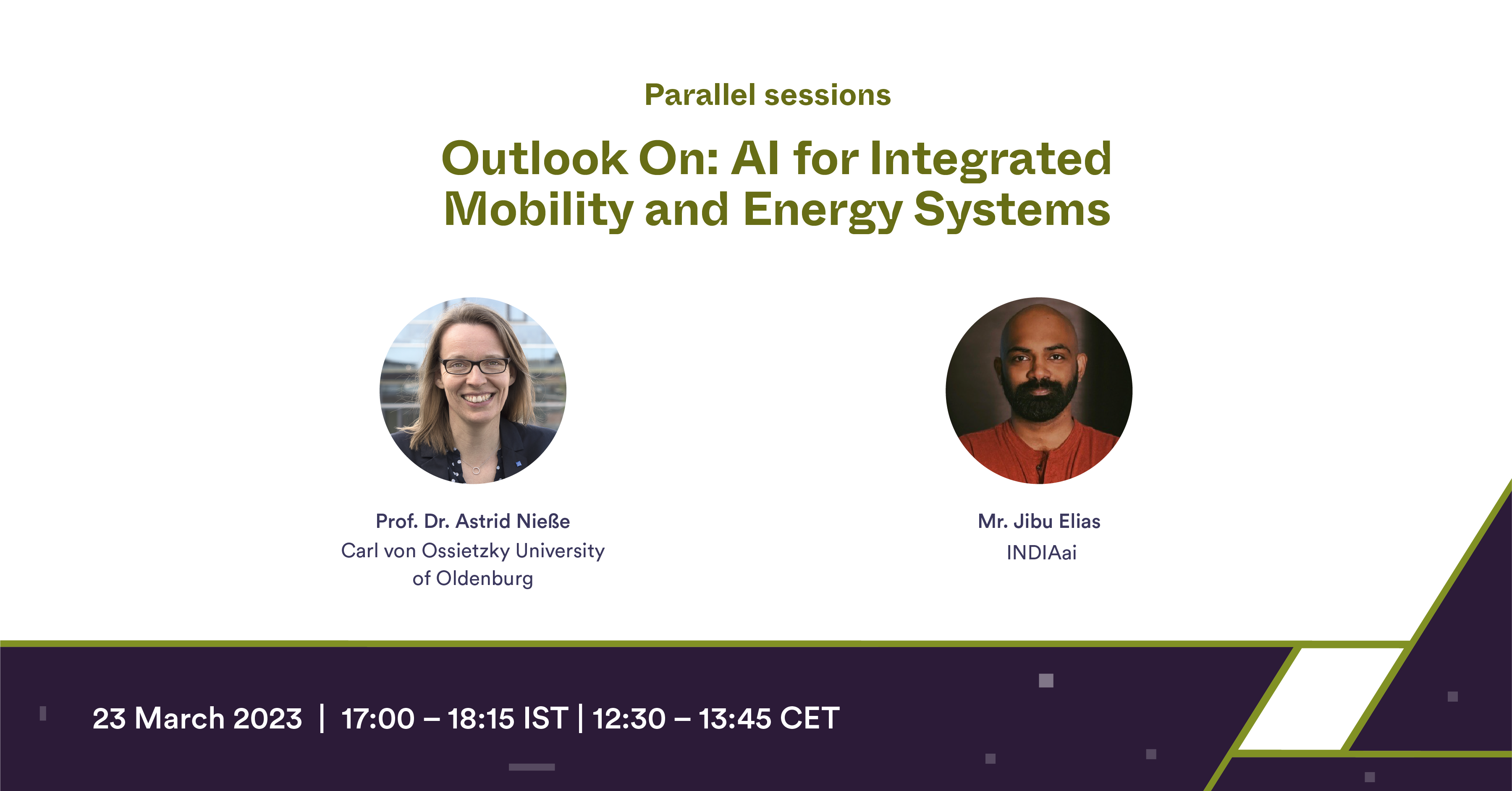
Artificial intelligence is seen as one key enabling technology to master the transition to environmental-friendly mobility systems. The session will give an outlook on the application of AI in two different fields in the context of urban mobility. The use of artificial intelligence methods for distributed energy systems and smart grids addressing the energy sector. The second question addressed by the experts is: how AI can support the development of intelligent transportation and hence resource efficiency in mobility?